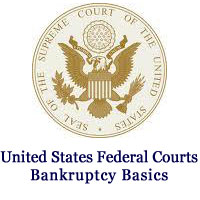Bankruptcy Attorneys
Contact us today at (910) 763-3626.
Our team of attorneys at Carter & Carter Law has a great deal of experience guiding our Wilmington, N.C., clients through the filing process for Chapter 7, Chapter 11, or Chapter 13 Bankruptcy. We also work with companies who choose to file a Chapter 11 reorganization. There are many decisions an individual or company must make during the bankruptcy process, and our attorneys have experience helping clients understand their options and the ramifications of each option.
Several types of bankruptcy are available to individuals and companies, and choosing the right one is the crucial first step toward a debtor’s “fresh start.” In every bankruptcy, you (or your company) begin the process by identifying all of your assets and all of your debts. We can explain your bankruptcy and non-bankruptcy options much more clearly once we finish this preliminary accounting.
Most individuals who file bankruptcy do so under either Chapter 7 or Chapter 13 of the Bankruptcy Code. In a Chapter 7 bankruptcy, known as “liquidation,” the debtor keeps certain “exempt” property (e.g., equity in a residence or motor vehicle, tools, clothing, certain pensions and benefits). Any property that is not “exempt” will be sold, and the proceeds will be used to pay the creditors according to the nature of their claims.

“America leads the developed world in bankruptcies because for more than a century, we’ve worked hard to build the best—and, not coincidentally, the most generous—bankruptcy code in existence…America’s business environment is much more dynamic than that of Europe or Japan, for many reasons—and our generosity to capitalism’s losers is one of them.”
“Bankruptcy Basics provides basic information to debtors, creditors, court personnel, the media, and the general public on different aspects of the federal bankruptcy laws. It also provides individuals who may be considering bankruptcy with a basic explanation of the different chapters under which a bankruptcy case may be filed and to answer some of the most commonly asked questions about the bankruptcy process.”
After a period of generally six months to a year, the Chapter 7 debtor receives a discharge, and the bankruptcy proceeding is over.
In a chapter 13, an individual agrees to pay more of his or her debts from his or her future earnings in order to keep certain non-exempt property. The bankruptcy court guides the debtor through the process of restructuring outstanding loans and developing a feasible “plan” for repayment over the next three to five years. Whether you file a Chapter 7 or a Chapter 13, you need attorneys who can explain every step of the process to you, make sure you receive all your exemptions, and help you craft a feasible repayment plan if necessary.
Companies generally prefer to file a Chapter 11 reorganization. Companies cannot claim exemptions, but they often have many more creditors with much larger claims. A large body of nationwide case law informs the progress of a sophisticated Chapter 11 case, and we make sure that the court and the client both understand the state and federal law that applies to each matter.
Please contact our office to inquire further about our law services pertaining to Bankruptcy in Wilmington NC: (910) 763-3626
Creditors: See our page regarding Creditors’ Bankruptcy Rights

